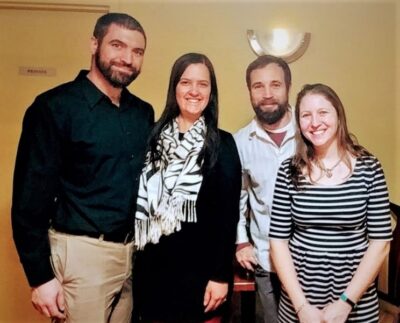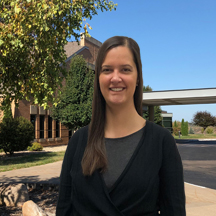
There are times in my life where the mere hint at yet another thing someone is asking of me has the potential to put me over the top. Whether home life, work life, friends, kids, invitations to events—sometimes enough is enough.
We have the danger in ministry of becoming busy-bodies. It’s fun to serve. It feels good to serve. It LOOKS good to serve. But there is also a side of serving we don’t often address: Serving Burnout.
Serving burnout comes from unmotivated serving. Serving for the wrong reasons. Serving out of a deficit of our spiritual walk instead of out of an abundance. Serving because we’re ‘supposed to’. Serving because that’s what ‘good Christians do.’
When I get to the place in life where one more task sounds completely unbearable, I am at that serving-burnout-threshold: the place where instead of serving joyfully and happily, I am serving with a darkened, bitter, grumpy, whiny, complaining heart that finds fault in everyone and everything.
At this moment, I need to run to the Father. At this moment, I have lost sight of God and am running in my own strength instead of His. When I have lost sight of God and am serving outside of my abundance with Him, serving sucks. And I am bitter person. When I am at one with God, when I am at peace with God, my natural loving, serving heart is opened and I can find joy in even the most menial tasks.
As we learn about our church vision of “LOVE. BELONG. SERVE.” you must know it isn’t all about doing! At first glance, it looks like more ‘do this, do that’ but it is not! These three things are completely motivated by the work that God has done FIRST. We can truly extend love, only to the capacity that we know of God’s great love for us through His son Jesus. We can extend belonging to another, out of a depth of knowledge that God has adopted us as orphans to become part of His family. And we are able to love, to help others belong and able to serve because God has done all these things first.
 Leah Carolan
Leah Carolan
Director of Worship & Media


 Kyle French
Kyle French Kris Crowther
Kris Crowther We prioritize our small group relationships in-part because it provides us with belonging and connection, even in a pandemic. It’s where we live out the sanctification process. Sometimes that process is ugly or involves anger and sometimes it is joyful. Over the last 5 years, we have gotten on each other’s nerves, sometimes to the point of not speaking to each other for a short time. But that’s the reality of being broken humans in a close relationship. The beauty is that we get to give and receive hospitality, authenticity, forgiveness, and restoration in the regular flow of life.
We prioritize our small group relationships in-part because it provides us with belonging and connection, even in a pandemic. It’s where we live out the sanctification process. Sometimes that process is ugly or involves anger and sometimes it is joyful. Over the last 5 years, we have gotten on each other’s nerves, sometimes to the point of not speaking to each other for a short time. But that’s the reality of being broken humans in a close relationship. The beauty is that we get to give and receive hospitality, authenticity, forgiveness, and restoration in the regular flow of life. Lindsey Ungs
Lindsey Ungs Steve Poole
Steve Poole
